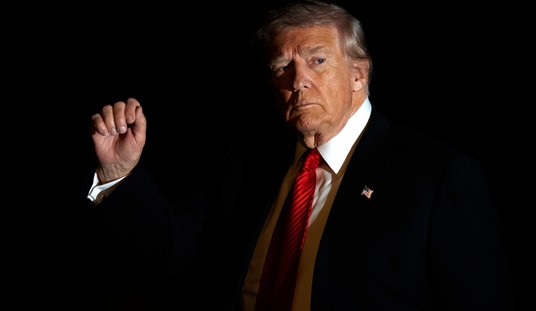
FBI Director James Comey, testifies before a House Commerce, Justice, Science, and Related Agencies Subcommittee budget hearing about the Federal Bureau of Investigation’s FY 2017 budget, on Capitol Hill in Washington, Thursday, Feb. 25, 2016. (AP Photo/Manuel Balce Ceneta)
Catherine Herridge used to report for Fox and was well known for her investigative and excellent journalism.
She’s now over at CBS, but that isn’t stopping her reporting.
She highlighted, literally, the problem with the whistleblower’s claims about why he failed to tell the ICIG about his contacts with Congress, through contact with an aide for Rep. Adam Schiff (D-CA).
As impeachment enters new phase, #WB did not initially disclose contact w/Schiff staff citing “guidance on a procedural question,” “no substance of the actual disclosure was discussed,” and “way the form question was worded.” https://t.co/WPgcbI88Ym
My Sharpie. My highlighter. pic.twitter.com/EtzuSDX87l— Catherine Herridge (@CBS_Herridge) December 2, 2019
Now, her highlighter is at it again, noting the admission in the report on page 411 that “CHS” or “confidential human sources” were employed against the Trump team, “against multiple targets including high level Trump campaign official who was not under investigation.”
#FISA FBI ran confidential human sources (CHS) against multiple targets including high level Trump campaign official who was not under investigation. IG found DOJ and FBI oversight policy “not sufficient” #pg411 My Sharpie. My highlighter. My real time notes #CBSNews pic.twitter.com/yrYU4CYcnV
— Catherine Herridge (@CBS_Herridge) December 10, 2019
Herridge notes “1 party” over the “consensually monitored” part. What that means is that one party, the person wired, consented to the wire. It doesn’t mean that the people being monitored in the meetings consented to it.
Shortly after the FBI opened the Crossfire Hurricane investigation, the FBI conducted several consensually monitored meetings between FBI confidential human sources (CHS) and individuals affiliated with the Trump campaign, including a high-level campaign official who was not a subject of the investigation. We found that the CHS operations received the necessary approvals under FBI policy; that an Assistant Director knew about and approved of each operation, even in circumstances where a first-level supervisory special agent could have approved the operations; and that the operations were permitted under Department and FBI policy because their use was not for the sole purpose of monitoring activities protected by the First Amendment or the lawful exercise of other rights secured by the Constitution or laws of the United States. We did not find any documentary or testimonial evidence that political bias or improper motivation influenced the FBI’s decision to conduct these operations. Additionally, we found no evidence that the FBI attempted to place any CHSs within the Trump campaign, recruit members of the Trump campaign as CHSs, or task CHSs to report on the Trump campaign.
How is any of that justified, especially against a “high level campaign official who is not the subject of the investigation”?
As Herridge noted, the report did find that the oversight policy was insufficient to pick up on the problematic issue of spying, excuse me, deploying “confidential human sources” who are consensually monitored, against a presidential campaign.
However, we are concerned that, under applicable Department and FBI policy, it would have been sufficient for a first-level FBI supervisor to authorize the sensitive domestic CHS operations undertaken in Crossfire Hurricane, and that there is no applicable Department or FBI policy requiring the FBI to notify Department officials of a decision to task CHSs to consensually monitor conversations with members of a presidential campaign. Specifically, in Crossfire Hurricane, where one of the CHS operations involved consensually monitoring a high-level official on the Trump campaign who was not a subject of the investigation, and all of the operations had the potential to gather sensitive information of the campaign about protected First Amendment activity, we found no evidence that the FBI consulted with any Department officials before conducting the CHS operations-and no policy requiring the FBI to do so. We therefore believe that current Department and FBI policies are not sufficient to ensure appropriate oversight and accountability when such operations potentially implicate sensitive, constitutionally protected activity, and that requiring Department consultation, at a minimum, would be appropriate.
It’s outrageous that such an operation would be allowed against the presidential campaign of the opposing party of the administration in power and incredibly troubling that policy apparently doesn’t provide sufficient oversight. And that’s giving it the best spin.













Join the conversation as a VIP Member